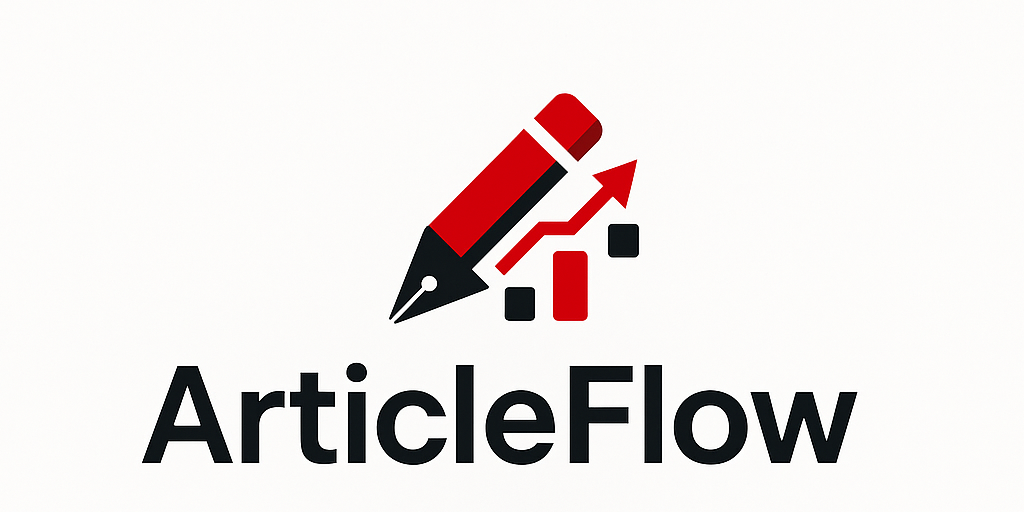Boost Rankings with AI and Smart Blogging Strategies
Standing out with your blog can feel impossible when there are millions of WordPress sites and every niche seems packed.
For entrepreneurs and bloggers, the biggest challenge isn’t just publishing blog posts—it’s finding time to optimise each one for SEO and building authority on topics that matter to your audience.
That pressure can be overwhelming, especially when every minute counts.
But there’s good news. Powerful AI and artificial intelligence tools are now turning time-consuming tasks like keyword research and SEO writing into streamlined, effective routines.
With bespoke AI-assisted SEO content, you can save hours each week and still produce engaging blog posts that get noticed by search engines.
In this post, you’ll get clear, actionable WordPress blog SEO tips tailored for busy content creators, digital marketers, niche builders, and small business owners.
You’ll see how AI and expert SEO strategies work together, making it easier than ever to boost your site’s rankings and reach.
Get ready for practical steps, time-saving advice, and a fast track to better results—no jargon, just simple tips that work.
The Foundation: Keyword Research and Content Planning
Before you start publishing blog posts or tweaking your theme, it’s crucial to set your WordPress SEO efforts on solid ground.
Smart content planning starts with understanding what people search for and when.
With the right keywords, you can attract your ideal visitors, tap into new audience segments, and create momentum for your site—whether you’re a niche builder or a business chasing broader markets.
 Photo by Tobias Dziuba
Photo by Tobias Dziuba
Why Keyword Research Matters for WordPress SEO
Keyword research is the heart of all successful WordPress blog SEO tips.
When you know what your readers are searching for, you can shape your content to match their needs and interests.
This is how you lay the groundwork for SEO success and more traffic.
If you skip this step, you may find yourself blogging in the dark, struggling to attract the readers who matter most. Here’s why great keyword research matters:
- It finds your true audience. Get insight into what visitors actually want, not what you think they want.
- It reveals content opportunities. Niche builders can spot new subtopics, while broader sites can target multiple interest areas for more organic reach.
- It drives targeted traffic. With focused keywords, you attract readers more likely to engage, subscribe, or become customers.
When expanding your blog, striking a balance between niche topics and broader subjects can help you grow.
Focusing too narrowly means you might miss out on valuable traffic, while too broad means more competition.
Thoughtful research is the secret sauce that sets confident, growth-driven bloggers apart.
Want a deeper dive into finding profitable keywords? Our guide on how to find keywords for SEO breaks down the process with simple, repeatable steps.
Leveraging AI for Smarter Keyword Discovery
Gone are the days of spending hours with spreadsheets! Artificial Intelligence makes finding the best keywords quicker and smarter.
Modern AI SEO tools sift through mountains of data, picking out both easy wins and hidden gems that manual research often misses.
By blending classic SEO know-how with AI-powered tools:
- You get tailored keyword ideas based on real user intent, not just broad estimates.
- You spot patterns and trends early, which helps you stay ahead of seasonal and trending searches.
- You uncover underserved topics that even big competitors might miss.
AI doesn’t just save time—it gives every blogger and business owner an edge. Whether you need to generate blog post ideas or map out a long-term plan, using AI blogging and content creation services ensures your content always stays relevant and discoverable.
Think of it as having a smart assistant who never sleeps, constantly working to pinpoint the best keywords for your goals.
Crafting a Winning Content Calendar
Once you have your top keywords, it’s time to plan your content with intention.
A well-structured content calendar isn’t just about posting regularly—it’s about aligning every post with what people are searching for right now, and what will build your authority over time.
- Foundational keywords are your core topics. These posts become your evergreen “hubs”—the content you want ranking for your most important searches.
- Trending keywords keep your site fresh. These let you tap into current events, seasonal trends, or industry buzz, capturing bursts of traffic.
Here are a few steps to get started:
- List your target keywords (both foundational and trending).
- Map each keyword to a content idea that answers a real search query.
- Schedule posts at regular intervals, mixing evergreen and trending topics.
- Track results and adjust—use what you learn to improve future posts.
By setting these routines early, you avoid running out of ideas or scrambling to fill a blank space.
Every piece of content has a purpose, fits your strategy, and moves your WordPress site closer to the traffic, subscribers, or sales you want.
Smart keyword planning is the backbone of effective WordPress blog SEO tips.
Combine it with the speed of AI and you’ll have a workflow that saves time and keeps your blog one step ahead.
On-Page Optimisation Strategies for WordPress Blogs
Running a WordPress blog isn’t just about putting words on a page. Each post is a fresh chance to improve your rankings and attract more readers.
Smart on-page SEO gives your posts that extra boost in search results.
For niche builders and busy entrepreneurs alike, using modern techniques and AI-powered tools streamlines this process and drives better results.
SEO Best Practices for Blog Posts
 Photo by Pixabay
Photo by Pixabay
Optimising a WordPress blog post isn’t mysterious or exhausting. It’s about following a simple checklist to ensure every piece gets the attention it deserves.
Here’s how to tune up each part of your posts for the best SEO impact.
Title Tags That Do the Heavy Lifting
- Put your main keyword, like “wordpress blog seo tips,” near the start of your title.
- Keep it under 60 characters so it shows up fully in Google results.
- Make it engaging but descriptive—your headline is often your first impression.
Headers for Structure & Clarity
- Break up sections with header tags (H2s and H3s). This makes your article easier to scan for readers and search engines.
- Use related keywords and topics in your headers to add context and relevance.
Image Optimisation That Goes Beyond Looks
- Add at least one relevant image per post. Optimised images catch attention and can rank in image searches.
- Use descriptive file names (e.g.,
blog-seo-checklist.jpg) rather than random strings. - Add descriptive alt text that includes a keyword but remains natural for screen readers.
Internal Links to Keep Readers Engaged
- Link to related articles within your own site to keep readers on your page longer.
- When you mention advanced strategies or niche builder tactics, point readers to supporting guides or resources.
Easy-to-Read URLs
- Edit your post’s URL to include your primary keyword and remove stop words if you can.
- Short, clean URLs look better and help with rankings.
Fast Loading & Mobile-Friendly Design
- Use a lightweight theme and compress images for faster page loads.
- Make sure your site looks great on phones and tablets—Google rewards mobile-friendly pages.
Applying these steps to every blog post helps niche builders establish authority and makes your site more enjoyable to read.
Over time, these small improvements add up, helping you stand out from competitors.
For a deeper dive on SEO best practices, this guide on finding SEO keywords is a smart place to start.
Using AI Tools to Elevate Content Quality
AI isn’t just the future of blogging—it’s a practical helper right now. With AI-assisted tools, you can polish your posts before publishing, ensure your writing is clean, and even get suggestions for stronger headlines or image ideas.
Saving time without sacrificing quality is a win for bloggers and businesses alike.
How AI-Driven Features Make a Difference
- Grammar & Clarity Checks: AI writing assistants spot awkward phrases, missed commas, or confusing structure in seconds.
- Content Enhancement: Need to expand on a point or make your intro more compelling? AI can propose ways to improve your flow or add helpful examples.
- Image Suggestions: Some AI tools now recommend relevant images or graphics to break up your text and hold attention.
Imagine you run a small bakery and want to promote a new line of gluten-free treats. With AI editing and content tools, you can:
- Get suggestions for catchy blog titles (e.g., “Easy Gluten-Free Desserts Your Family Will Love”).
- Instantly correct spelling and grammar errors.
- Receive tips to add FAQs or step-by-step images, making your post more complete.
- Find free, keyword-rich images of baked goods to insert into your post.
That’s real efficiency, and it empowers even solo bloggers to publish high-quality, SEO-optimised posts week after week.
For bloggers or niche builders managing a busy schedule, AI turns cumbersome editing into a fast, friendly routine that never sleeps.
Curious about using AI for your WordPress site? Explore AI blogging and content creation services and see how artificial intelligence can lift your site’s content game.
Internal Linking for Greater SEO Impact
Internal linking isn’t just about keeping visitors on your blog longer.
It also signals to search engines how your content connects, which can strengthen your authority on specific topics and boost rankings for competitive keywords.
Why Smart Internal Linking Matters:
- It guides your readers to the most helpful, related posts.
- It encourages visitors to stay on your site and explore your expertise.
- It distributes ranking “power” across important pages, helping newer posts gain traction.
Tips for Link Placement:
- Add links where they help the reader get more value—like linking to a related blog series, an in-depth service page, or a tutorial connected to the topic.
- Use descriptive anchor text. Rather than saying “read more,” try “learn how AI blogging services streamline your content strategy.”
- Don’t overdo it! Aim for 1–3 internal links per post section so your content stays readable.
A great starting point for many bloggers is integrating links to service pages that actually help your readers. For instance, if you write about time-saving blogging, discuss how AI blogging services can automate research and editing for you.
By making smart use of internal links, you help search engines connect your ideas—and your readers find what they need faster.
It’s one of the simplest, yet most powerful, wordpress blog seo tips for anyone who wants to build a loyal, engaged audience.
Building Authority: Engagement, Niche Focus, and AI Content Services
The right mix of authority, focus, and community spark makes all the difference for your WordPress blog’s SEO.
How you position your blog, the way you create content, and how you interact with your audience all shape the signals Google trusts most.
Here’s how to set your blog up to be recognized, respected, and remembered, backed by the power of artificial intelligence and a genuine passion for your niche.
Establishing Your Blog’s Authority in a Niche
 Photo by Markus Winkler
Photo by Markus Winkler
Google rewards sites that feel credible, offer value, and stick to their strengths.
Authority doesn’t happen by accident; it grows from focused content, expertise, and posts that stand out.
Start by narrowing your content toward a clear niche.
This helps Google see you as a go-to source and gives readers confidence that you know your stuff. Here’s how to make it work:
- Choose your main topic and stick to it. Whether it’s gluten-free baking or e-commerce growth hacks, focused blogs attract loyal readers.
- Feature expert opinions and interviews. Bring outside voices to your posts for added weight. When readers see credible ideas and research, they trust you more.
- Create pillar posts. These in-depth guides act as the backbone of your blog. A comprehensive pillar like “The Ultimate Guide to [Your Niche]” earns backlinks and keeps visitors coming back. They naturally attract shares and help Google see your site as an authority.
Back up your authority with data, clear examples, and references to well-known sources. Your reputation grows every time another site links back to your best work.
If you want a roadmap for strong keywords, check out this guide to how to find keywords for SEO. Solid keyword choices give your pillar posts more reach and impact.
When your blog stays in its lane and delivers trusted advice, word spreads.
Momentum builds as Google gives you top billing—proving just how much focused expertise matters for wordpress blog seo tips.
Harnessing AI-Assisted Content Creation for Blogging Success
Bespoke content no longer takes a team of writers and endless drafts.
With AI-assisted SEO writing services, anyone can create tailored blog posts that shine.
AI and artificial intelligence content tools learn your business or niche inside and out.
They help you produce content that meets both Google’s high standards and your reader’s craving for clarity. This means:
- Fast, on-topic post creation. AI saves hours each week, freeing you to handle bigger projects or sip your coffee in peace.
- SEO optimization from the start. These tools suggest the best keywords and headline ideas, fix grammar, and help structure your posts.
- Endless ideas and efficiency. Never get stuck staring at a blank screen again.
Bloggers, small business owners, and niche builders see results sooner with this approach. Quality remains high, but time and effort drop way down. To see how AI can fuel your own blog growth, explore the full range of AI blogging and content creation services tailored to suit your needs.
Ready to see your site attract more readers, links, and leads?
Discover bespoke, AI-assisted SEO writing for any niche or business at Article Flow and watch your next blog post stand out from the pack.
Community Engagement and User Signals
Building authority is a team effort—you and your readers both shape your blog’s success. The more people interact, comment, and share your posts, the stronger your SEO signals get.
Here’s how to encourage engagement and track those vital user signals:
- Ask meaningful questions at the end of blog posts. It prompts readers to leave comments and keeps the conversation going.
- Highlight top comments or user-generated tips. When you showcase your readers, you invite more people to join in.
- Make sharing easy. Use simple share buttons and clear CTAs to help readers spread your content on their favorite platforms.
- Respond to comments. Every interaction tells Google your blog is helpful and active.
- Host polls or invite story submissions. Engaged users stay on your site longer and return more often.
Each action—clicks, comments, shares, or likes—acts like a stamp of approval in Google’s eyes. Over time, this feedback helps boost your rankings, especially if your community is active and loyal.
If you want to see how niche builders turn tiny blogs into trusted resources, stay tuned for our future case studies featuring real-world engagement wins and the results they bring.
Your next breakthrough might be sparked by the very strategies you’re reading here.
Conclusion
Applying proven WordPress blog SEO tips, paired with smart AI and Artificial Intelligence tools, offers a direct path to stronger rankings and more engaged readers.
Small business owners, niche builders, and bloggers can save time and see better results when they choose tailored, AI-powered SEO solutions.
Taking action on these strategies means less stress and more momentum. The power to drive growth and make your blog stand out is right at your fingertips.
For even greater results, explore AI blogging and content creation services designed for your unique needs.
Ready to see a real difference? Skyrocket your website’s visibility and enjoy blogging that gets noticed with bespoke AI-assisted SEO writing from Article Flow.
Stay tuned for new articles, case studies, and deeper guides—we’ll keep adding ways to support your growth and link out to even more helpful resources as they’re published.
Thank you for reading—your next SEO step starts now.
If you have tips or questions, share them below and inspire your fellow bloggers!





